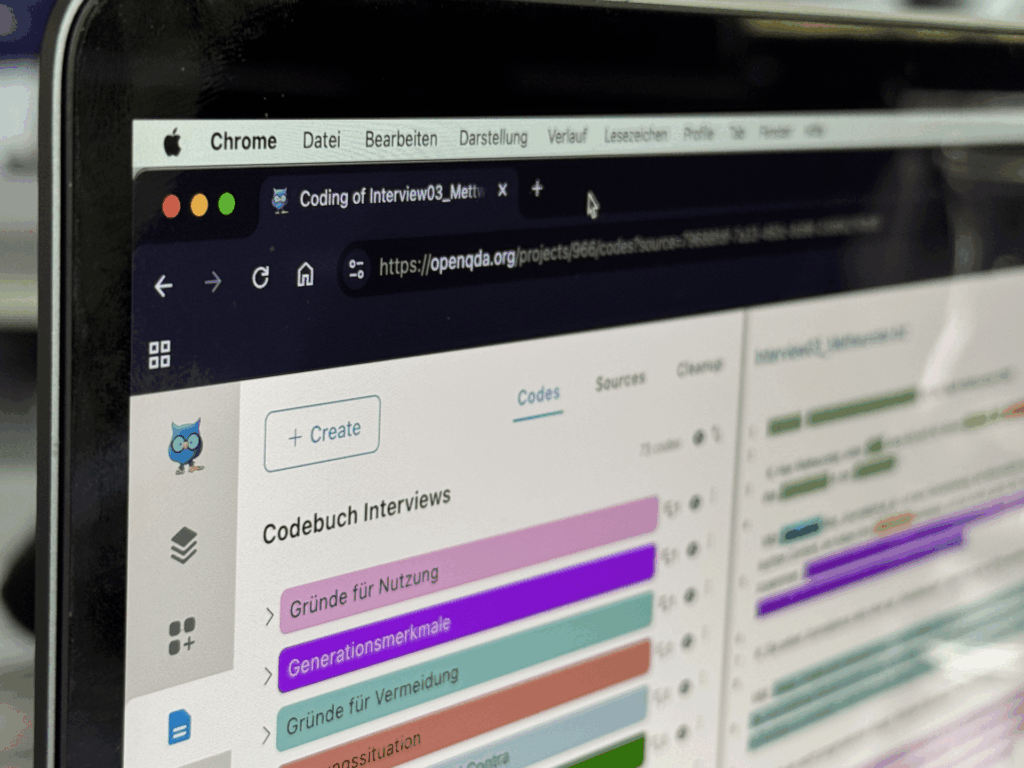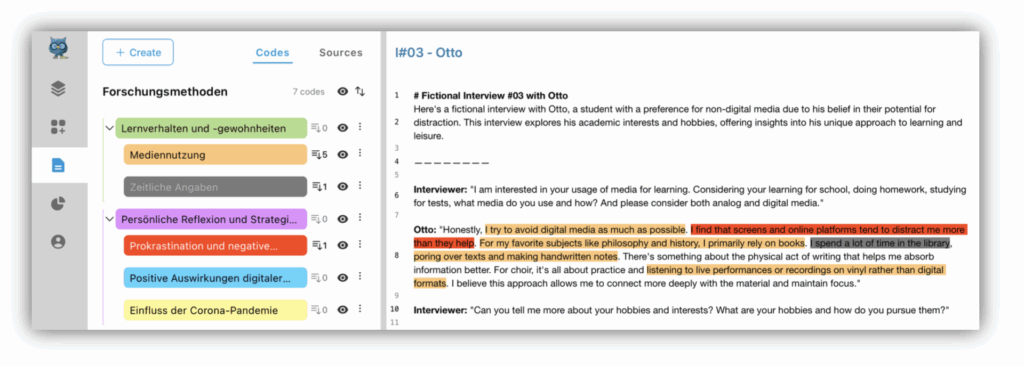
- Duration: 2023 – 2025
- Project lead: Prof. Dr. Andreas Hepp, Prof. Dr. Karsten D. Wolf
Based on our own needs regarding collaborative work, methodological expansion, fair data usage, and support for open research processes, ZeMKI has been developing OpenQDA since January 2023. You can use the software at https://openqda.org/ and find the source code and developer documentation at https://github.com/openqda.

The current special features of OpenQDA are:
- As a web-based application – similar to GoogleDocs – there is the possibility of collaborative team coding on documents (including inviting researchers into one’s own projects, sharing codebooks, joint coding, audit trail of individual edits);
- Lean, research process-oriented interface (project creation, data material preparation, step-by-step coding, analysis and data visualization);
- Open plug-in architecture related to the QDA process (i.e., for a) data transfer from various sources; b) transforming data for further processing; c) data storage; d) preparation and, if necessary, transformation of data for coding; e) coding including computer-assisted coding systems; f) analysis; g) visualization as well as h) distribution, e.g., as data export or report);
- Use of the plug-in architecture by other research groups for independent programming and provision of plug-ins (such as aTrain from the University of Graz for automated transcription with AI support);
- Database structure based on the REFI standard for data compatibility with other CAQDAS (for import or export of codebooks and data).”
This appears to describe an open-source qualitative data analysis platform that emphasizes collaborative research, methodological flexibility, and interoperability with existing research tools. The focus on open architecture and fair data usage aligns well with principles of accessible and ethical research practices.

